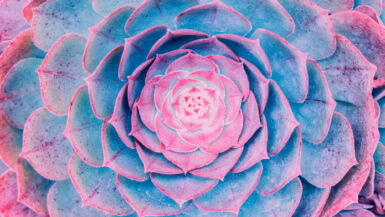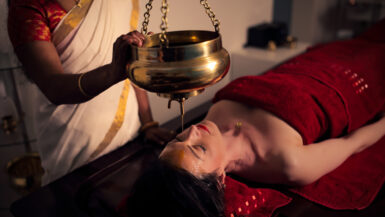Dull mood, constant state of high alert, inexplicable sadness, fear of the next day and sleep disturbances are the most common symptoms of depression. People suffering from depression tend to withdraw from all social aspects of life and find it increasingly difficult to actively participate in life or interact with others. Depression tends to come on gradually and can sometimes build up over years. Major depressive episodes also last far more than just a few days.
The World Health Organization estimates that more than 264 million people (up to 5% of adults) worldwide suffer from depression. This mental illness is widespread and, accordingly, the use of antidepressants has increased substantially. The prevailing idea is that in the case of depression, the brain is sick and therefore the brain chemistry must be “treated” with a medication. It is well known that these drugs sometimes have strong and even personality-altering side effects. In many cases, the first signs of depression are overlooked, which would the best opportunity to prevent the disease from progressing.
In this article we will show you how Ayurveda sees depression and to what extent the ancient Indian healing art can have an influence on the disease.
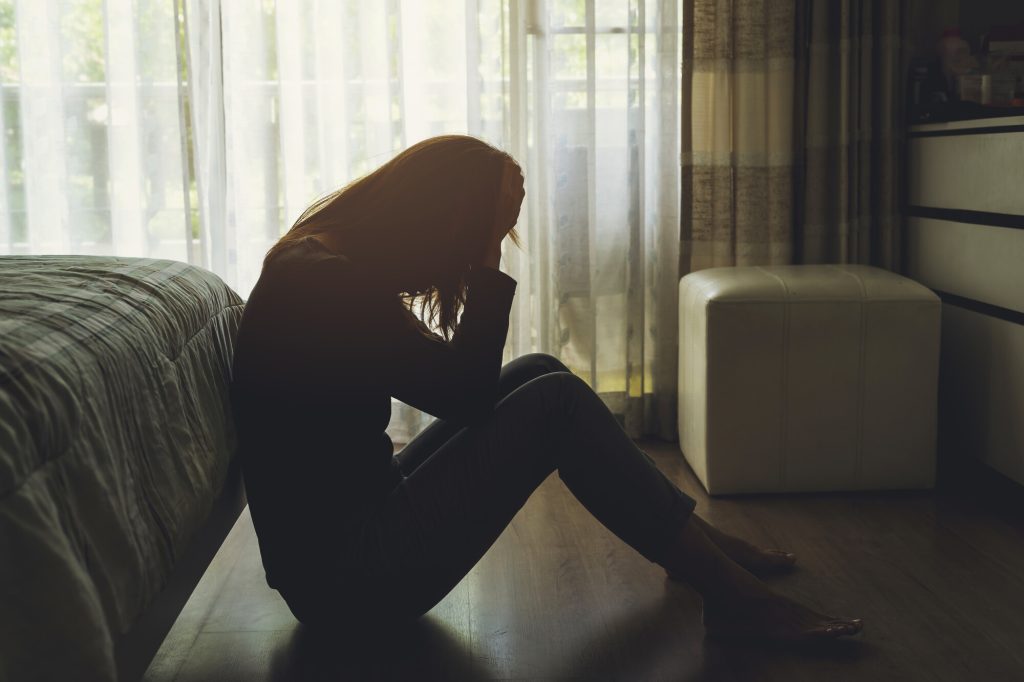
When the world feels dark and lonely – Can Ayurveda help with depression?
Ayurveda means “the knowledge of life”. However, for millions of people suffering from depression, life no longer seems worth living. Ayurveda offers a comprehensive understanding of the nature as well as the causes of depression. An Ayurveda offers a natural remedy for depression and promotes better mental health, along with greater inner satisfaction. Basically, Ayurveda identifies two main causes of depression: an imbalance in the three doshas Vata, Pitta and Kapha and the loss of contact with the inner self.
In all cases, the patient must be accompanied by an Ayurvedic doctor or therapist with a good understanding of the disease. The therapist will adapt the Ayurvedic treatments individually to the patient’s dosha type as well as the individual medical history and current state. They will develop a preventive strategy aimed at changing to a healthy lifestyle and improving mental health. From an Ayurvedic point of view, depression occurs when one loses contact with oneself. This happens due to permanent external stimuli, such as pressure to succeed, pressure to do justice to everything and everyday worries that cannot easily be overcome.
Can depression be treated without medication?
The treatment of depression with conventional antidepressants often has many significant unwanted side effects. They are also not suitable everyone, particularly those who get easily depressed. There are no suggested means of preventing this disorder. In addition, nearly half of patients treated for depression relapse. Given the dangers of such prescriptions, an Ayurveda retreat for depression is an alternative approach that has been a part of everyday medicine in the Indian healing arts for thousands of years. Ayurveda for depression recommends a long Panchakarma retreat as a prerequisite for all types of mental troubles to reduce ama.
Ama are toxins and waste products in the body that accumulate due to, for example, improper diet, resulting in inadequate digestive processes. They settle in the cells and tissues and cause inflammation, which in turn is the cause of countless secondary diseases. The time during the detoxification process of the Ayurveda retreat is used to identify the cause of the depression, which can be physical, mental, emotional or spiritual. After this deep cleansing, in addition to an individual diet plan, a program for stress reduction is also created to help the patient find themself again.
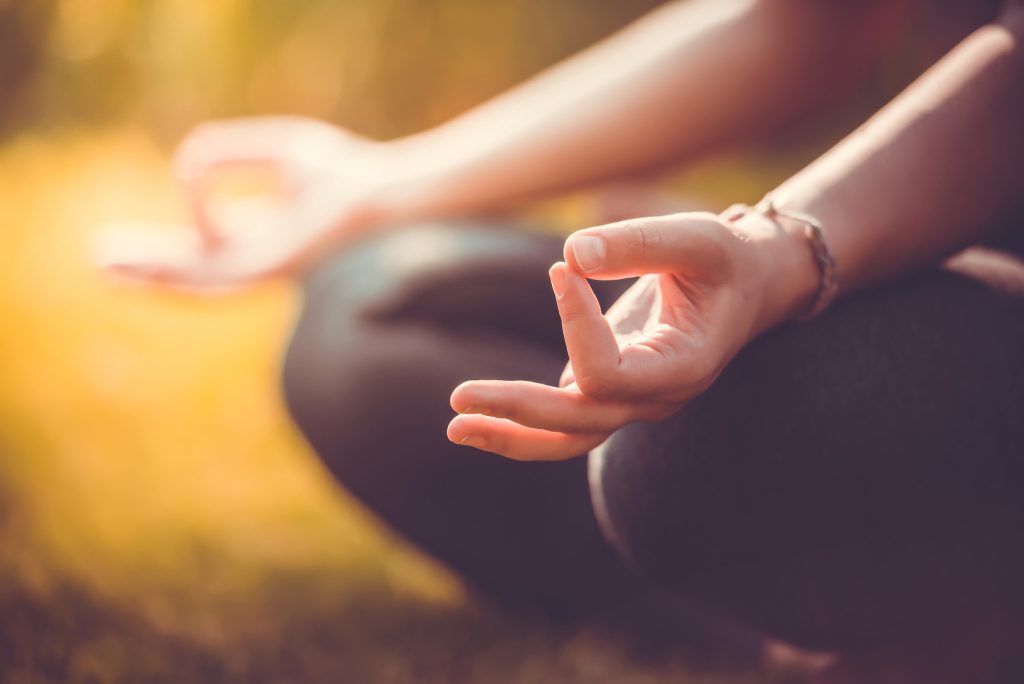
British researchers found in a two-year study in 2015 that “mindfulness-based cognitive therapy protects patients from relapsing into depression as well as conventional medication.” Half of the 424 participants who had suffered from depression in the past were given antidepressants. The other were trained, in the form of mindfulness meditations, to recognize and deal with negative thoughts and feelings instead of falling into depression again. The evaluation of the study by Willem Kuyken of Oxford University showed that the relapse rate for the subjects who were in the meditative therapy group was 44%, about the same as for the patients who were treated with antidepressants. Here the relapse rate was 47%.
7 tips how Ayurveda can help against depression
1. Change your diet.
Since Ayurvedic medicine is primarily preventive, it is important to lead a healthy lifestyle, starting with the food you eat. Optimally, this would be a diet plan adapted to your personal doshas so that it fits the person, their needs, and their life. Conscious food intake is an integral part of Ayurvedic medicine and especially for patients with depression, mindfulness and listening to your inner self is of great importance.
2. Practice mindfulness and meditation.
Your body can regain its natural balance and everyday ailments can begin to fade away, certain chronic diseases can dissipate, anxiety and stress can decrease, irritation and anger can be calmed. As mentioned above, studies – in fact, there are more than 20 in the last 6 years – prove that mindfulness-based cognitive therapies, i.e. meditations are a recognized and promising treatment for depression. You train your brain to push aside ruminations and dark thoughts and reopen yourself and your mind to the positive that flows into your life every day. You learn to recognize yourself and free yourself from states of mind characterized by negative thought patterns. Studies show that daily mindfulness meditation can replace antidepressants.
3. Get regular exercise.
Another important point is physical activity. Activity increases endorphin levels and has a positive impact on depressive states, as endorphins in the brain are known to relieve pain. Furthermore, this is one of the happiness hormones. A low endorphin level is also sometimes the reason for depressive moods. Therefore, it is of high importance to exercise regularly during an emerging or already existing depression, daily if possible. This could be something as simple as going for a brisk walk in fresh air.

4. Be sure to maintain social contacts.
This does not mean that you need to go to parties. Participate in activities that interest you. If you are an art enthusiast, you can join an art lovers’ club, for example. Do you prefer reading books? Then join a book club. Or just knit a winter sweater with like-minded people if you like needlework. There are plenty of ways to find peace and strength, while in company. Or maybe reconnect with a friend by trying out new hobbies together.
5. Seek help.
Very important: confide in someone. If necessary, a therapist or trusted physician. Also from an Ayurvedic point of view, “asking for help” is one of the greatest strengths of mankind.
6. Use ayurvedic herbs.
In Ayurvedic medicine, herbs and spices are part of the treatment of stress-related illnesses, in addition to meditation, relaxation exercises, and type-appropriate nutrition. The following four Ayurvedic medicinal herbs are said to help strengthen the mind:
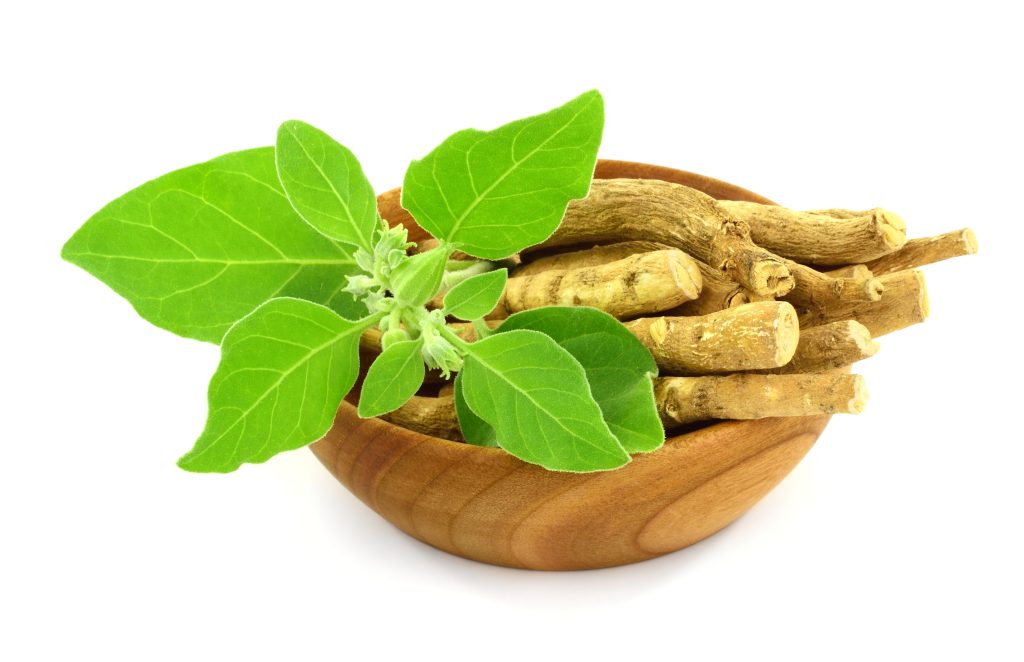
In Ayurveda, the winter cherry Ashvagandha is said to have a power- and immune-strengthening effect. It also has a particularly positive effect on nerves, concentration, sleep disorders and depression.
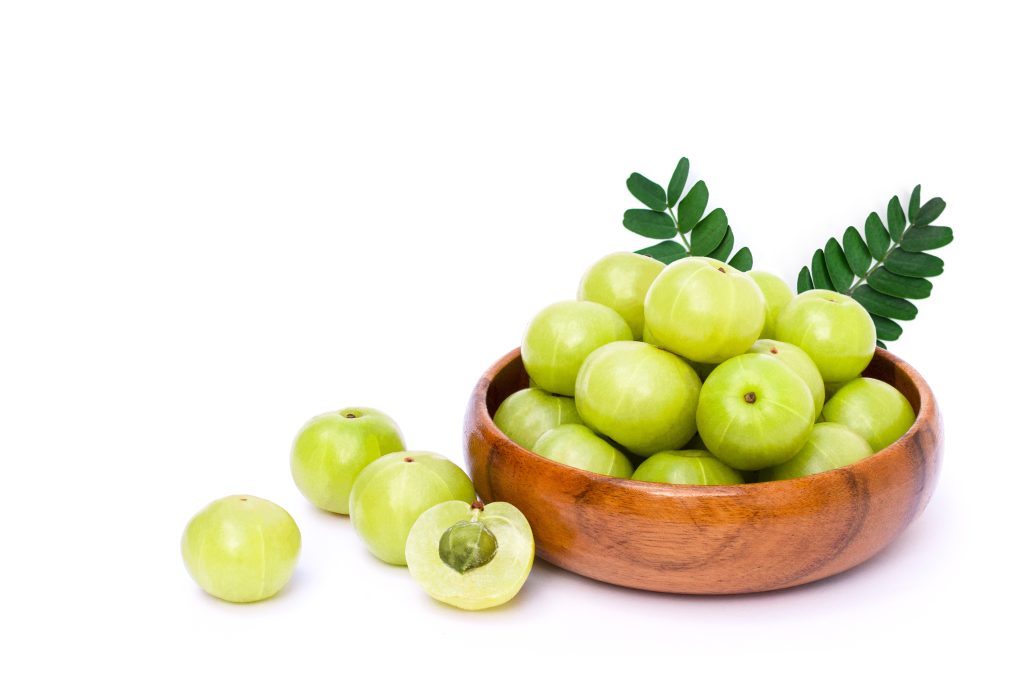
The amla fruit Amalaki is called the “mother of medicine”. Thanks to its positive influence on stress-related illnesses, it is also used preventively and regeneratively for depression and burnout.
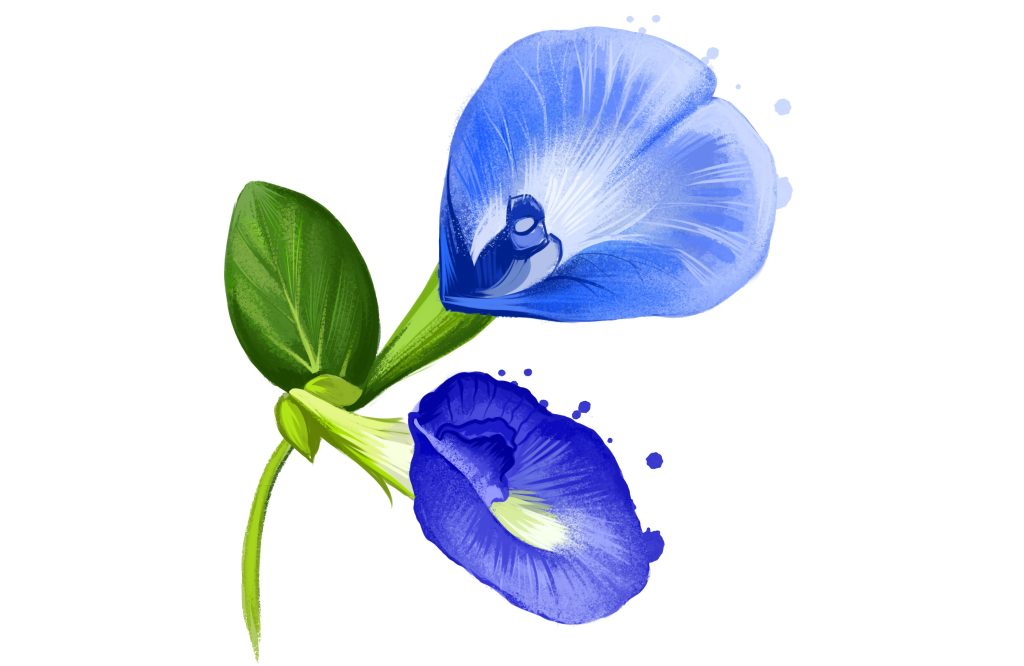
Shankhapushpi also has a balancing and strengthening effect on the mind and harmonizes the doshas. In combination with navel herb (Brahmi) and long pepper (Pippali), this medicinal plant is also recommended for depression.
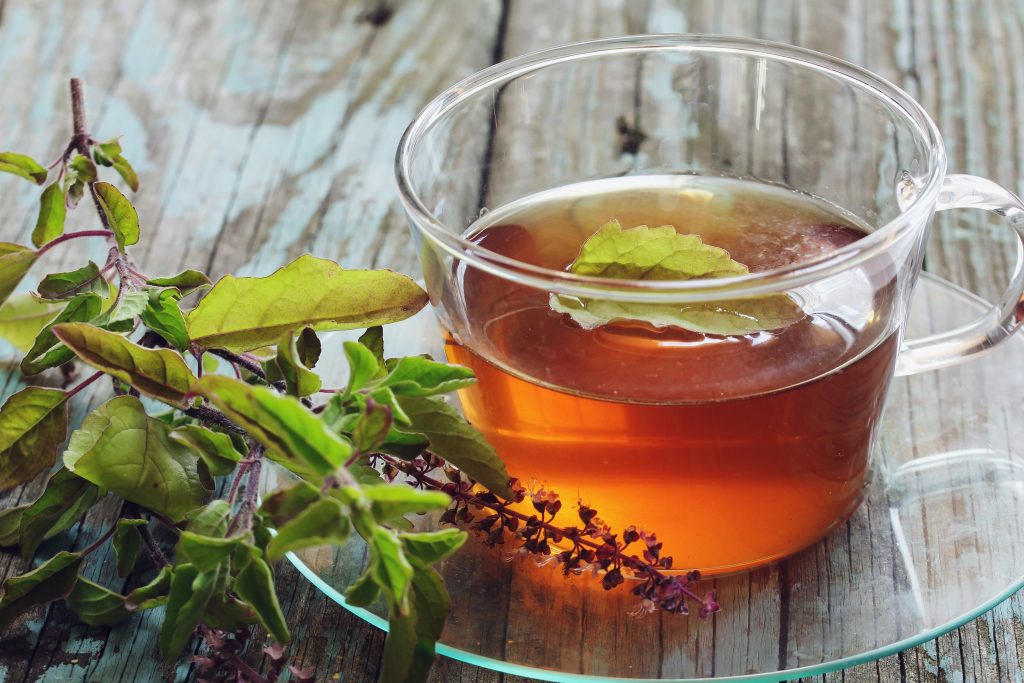
Tulsi, the Indian basil, relaxes, strengthens and rejuvenates the body. Thus, it also has a beneficial effect on our mental and emotional balance, serves to calm and strengthen the mind and promote mental resilience.
7. Book an Ayurveda retreat for depression.
Start your Ayurveda retreat for depression with a Panchakarma treatment. Here, a variety of Ayurvedic treatments are combined to restore the body’s optimal balance and cleanse it in depth. Panchakarma includes many beneficial rituals, such as massages, oil treatments and traditional forehead casts, in addition to cleansing treatments. This will greatly improve your physical qualities and provide the best foundation for dealing with your soul afterwards. Here you will have the kind and watchful guidance of trained Ayurvedic doctors and therapists.







